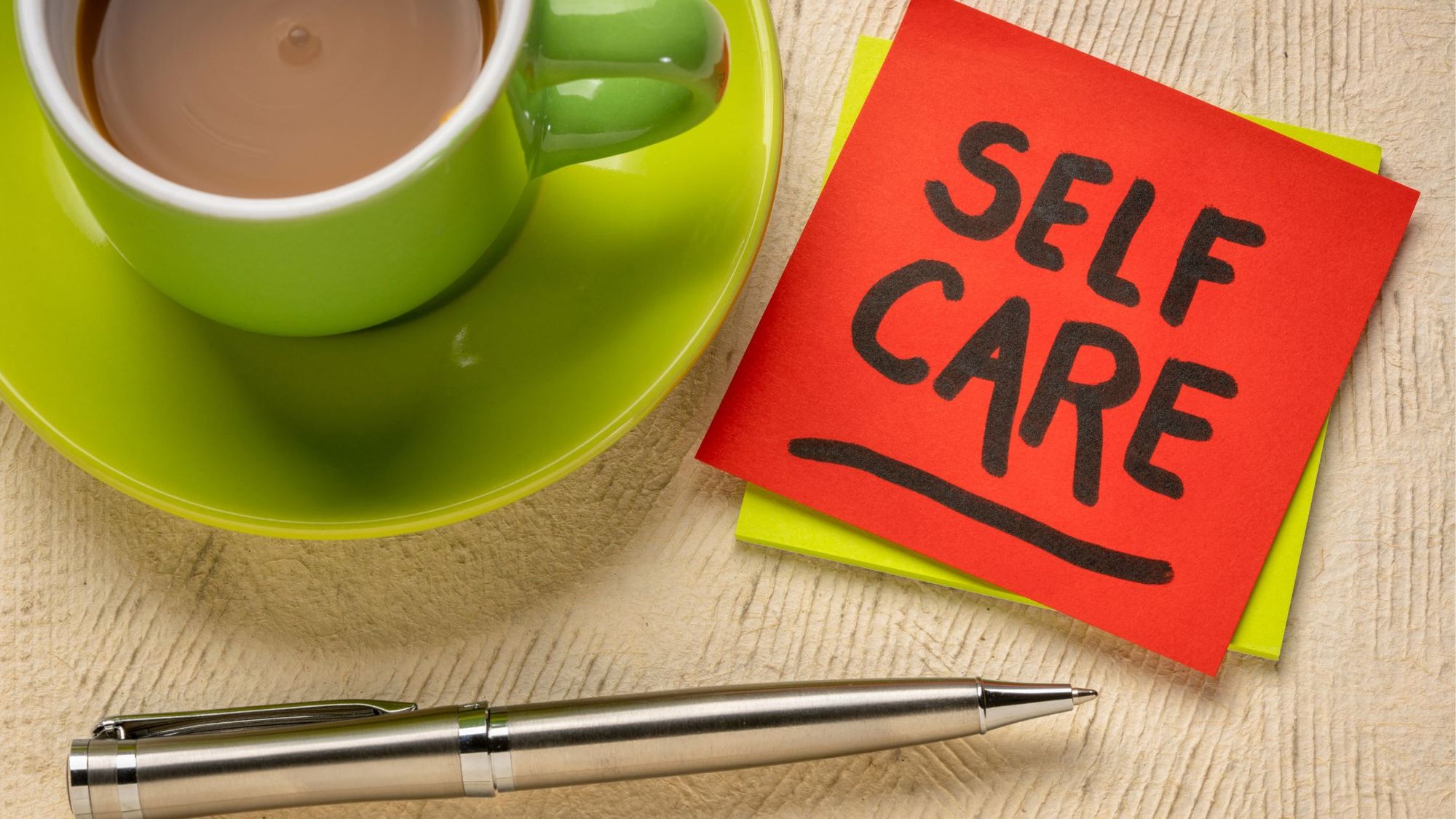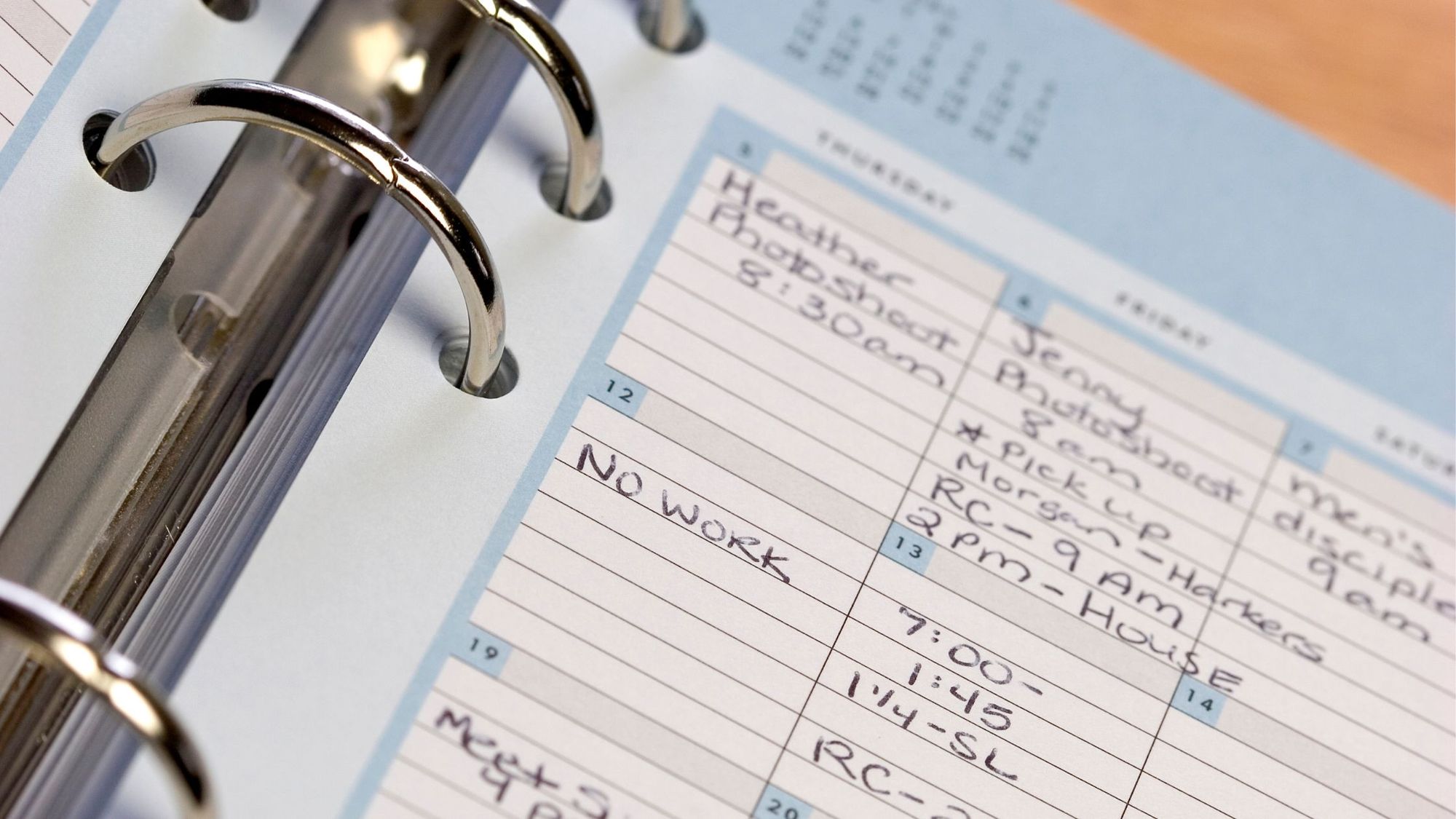
Learning how to create a self care planner helps you implement the fundamental and nurturing practice of self-care into your life. Self care is the ultimate act of self-love because it involves intentionally caring for yourself physically, emotionally, and mentally. When every part of your holistic self is aligned, you are more likely to achieve optimal health and wellness. Remember, self-care is not selfish or overly indulgent.
Setting goals for your own well-being should have equal priority with every other task on your to-do list. Making time for endeavors that fill your empty cup assures you’re in the best position to achieve your other plans in life. The only time your cup can overflow and bless others is when you nurture yourself. Studies show that self care could promote overall well being, boost health, prevent burnout, and amplify productivity.
It’s obvious why self care is so important, but a self care planner is what will help you practice self care consistently. Find out how to create a self care planner to honor yourself and your wishes.

Creating a Self Care Planner That Works
There’s no right or wrong way to create a self care planner. In fact, your objectives or goals may look different than what’s written in other people’s individual planners because self care involves what you want for your life. Creating a self care planner is a journey that’s uniquely your own. You must honor what feels right based on your needs and preferences.
When you analyze your situation, you will realize that it feels easier to prioritize and pencil in the needs of children or spouses, demands of work, and requests of friends in your daily schedule. Although it could feel rewarding to put others first, you may end up neglecting yourself. Before you realize it, you’re already spent, tired, and stressed out.
You cannot continue to give others what you don’t have, so loving yourself is also a necessity. Research proves there’s so much value in reclaiming your daily self care routine and setting intentional self care practices. This means you can continue giving more to the people you love. Check out how to create your own self care planner. These strategies will help you rest and replenish your weary soul.
Assign a Dedicated Notebook as Your Self-Care Planner
Incorporating self care habits into your hectic schedule will become easier if you have a dedicated planner for setting and monitoring your self care goals. You can use a notebook with a lovely design to motivate you to pen down your heart’s desires. If you are the creative type who enjoys lettering and designing, you can make your own daily planner from scratch.
However, it’s also perfectly alright to purchase a ready-made diary or planner with the standard calendar. You just need to write down your daily or weekly wellness goals instead of your usual work or social life schedule.
Alternatively, you can also buy a dedicated self care planner that’s meant for just self care. This special planner usually comes with the following details:
- Quotes to inspire you to love yourself
- Reminders to take mental breaks, work out, and unplug
- Journal prompts to keep you connected to your spiritual side
- Checklists like drinking enough water, exercising, etc.
A self care planner, whether a blank notebook, a regular diary, or a curated self care journal, can readily help you make your well-being a top priority. This planner helps you set your self care routines and stick with them. It also helps you track everything so you can check what you’re doing and make adjustments when needed.
Set Your Self Care Intentions, and Make Time For Them
To make an effective self-care planner, you must understand what self care is all about. Perhaps you crave more time for yourself, want to achieve better physical health, desire to have more peace of mind, or just hope to have more play time to help you unwind.
When you ask others about self care, the first thing that may come to mind is spending the day at the spa getting a facial, massage, or mani-pedi. Although these are excellent self care tools, this is not the only way to define self care. Again, there is no right or wrong answer when it comes to setting intentions in your self care planner.
Self care involves doing activities that make you feel good. Doing them makes you feel like the best version of yourself. No family, friend, or social media influencer can dictate how to do that for you. If you want to go to the salon, eat the comfort food you’ve been craving, do a hobby, or just sleep in, go ahead. You do YOU! Be unapologetic because self care should not drain your energy, strain your finances, and leave you with guilt feelings.
Create Purposeful “To-Dos” in Your Self Care Planner
If you’re not used to prioritizing yourself, it may be difficult to figure out what to put in your self care planner. You can make this easier by making an internal assessment of what self care looks like to you. This is usually different for each person. It would help to visualize how you want to feel after you’ve done a self care activity. You may want to feel relaxed and forget about daily stressors.
Bear in mind that there are different self care areas like physical, mental, emotional, spiritual, social, and even financial. You can choose which to-do list routines to focus on and their frequency. Perhaps you prefer a daily self care list for accountability. Alternatively, a weekly to-do list in your self care planner may be more realistic and doable for you. Or you can also do a mix of both, depending on the situation.
No matter what you choose, know that by taking the time to create a self care planner, you are being kind to yourself and making your well-being a priority. And in doing so, you are putting yourself in the best position to care for others as well. Here are a few to-do examples for your planner to get you started:
Mental Self Care
- Wake up earlier to enjoy a quiet cup of coffee in the morning sun
- Listen to your favorite Spotify playlist
- Make time to watch your favorite movies or TV dramas
- Talk to a counselor or therapist
- Write in a journal and let your issues out
Emotional Self Care
- Learn a new hobby to help you destress
- Call your best friend or relative for a quick chat
- Read a self-help book or a novel you’ve been putting off
- Have a heart-to-heart talk with your partner
- Go on a vacation
Spiritual Self Care
- Find time to meditate for 10 minutes a day
- Pray to your deity
- Attend church or other secular activities
- Connect with members of your religious organization
Physical Self Care
- Find time to exercise 30 minutes each day
- Make your comfort food and indulge
- Go get a relaxing massage
- Put an at-home sheet mask and lounge in the tub
- Drink at least 8 glasses of water a day
- Make time for a skincare regimen day and night
- Stretch around at work every 30 minutes
Financial Self Care
- Track your expenses
- Monitor your savings account
- Deposit in your ROTH IRA
- Save a portion of your salary for investments
These suggestions are not set in stone. You can add more or take out those that don’t serve you well. Your self care planner is all about you and what enriches your life. Flexibility is important so you can regroup easily and adjust if you have a bad day. If you don’t feel like doing certain things because you feel overwhelmed at work, you can pare down your self care planner. Even the basic self care to-dos like brushing your teeth and showering are still great starting points.
Pencil in Your Self Care Plans
When you’re constantly on the go, you could inevitably feel physically tired and mentally or emotionally drained. That certainly doesn’t put you in the position to be your best self. When this happens, your health could decline and the fire burning in you could fizzle out. And when you feel weary, you tend to shy away from people which could make you feel even more anxious and sad.
That’s why it’s so important to schedule self care activities that you enjoy. Professionals say these activities help calm you down and ensure you feel refreshed. When you feel relaxed, you could give more to yourself. At the same time, when self-love overflows, you’re in the position to give more to others around you. The secret lies in making an intentional schedule. Write down your “me times,” giving yourself permission to rest and recharge. Here are some suggestions to foster that:
- Check your self care planner daily to commit to your strategies and plans
- Honor your me time and try your best not to cancel
- Block as much time as you need in your planner
- Make others aware of your plans in advance so they won’t bother you and support your activities
- Set push notifications like work Slack or social media on your phone to mute so you won’t feel disturbed
- Put reminders on your phone for important self care activities
- Keep practicing activities regularly like exercise or meditation so you’ll become more adept and efficient
- Evaluate and assess your planner at the end of the week and month to see your progress
Celebrate All Your Wins
The activities in your self care planner don’t have to be expensive or luxurious. They can be something as simple as drinking water or finding time to floss. Sometimes, rolling out of bed on a tough day is already worth celebrating. Life happens and some days are a little more harsh than others, so don’t be so hard on yourself.
As long as you feel good about yourself, consider that a victory. Celebrate all the little wins so you’re motivated to keep going. Use cute stickers or highlighters to show off your accomplishments. The whole point of having a self care planner is to stay attuned to your well-being so you’ll feel happier.
If you need help in creating a self care planner, taking a CircleDNA test may help. This at-home DNA test helps you get to know yourself better by providing over 500 reports on things like your ancestry information, success traits, disease risk, diet, nutrition, personality traits, hobbies, and more. All the reports are based on your genetic blueprint so you can plan activities and craft to-dos or checklists that align with your unique DNA.
The CircleDNA reports could help you adjust your self care strategies to maximize their impact. It’s critical to make sure that your self care planner resonates well with your life. Working with the most accurate information allows you to curate supportive self care activities that work and deliver the most optimal results.
Sources:
- Are formal self-care interventions for healthy people effective? A systematic review of the evidence (Nilushka Perera and Shade Agboola) https://www.ncbi.nlm.nih.gov/pmc/articles/PMC6861059/
- The value of intentional self-care practices: The effects of mindfulness on improving job satisfaction, teamwork, and workplace environments (Chelsie Monroe) https://www.ncbi.nlm.nih.gov/pmc/articles/PMC7553100/
Why self love is so important and how to cultivate it (Medical News Today) https://www.medicalnewstoday.com/articles/321309#_noHeaderPrefixedContent






